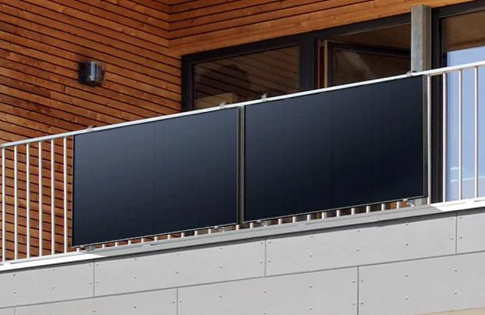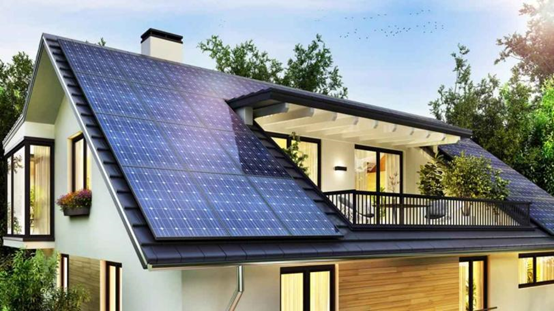Impacts the Weather May Have on Solar Panels
Solar panels can provide electricity to residential and commercial establishments despite adverse weather conditions, including cyclones, low temperatures, and overcast days. Solar energy production is unquestionably dependable, even in severe weather conditions. Solar energy systems can deliver exceptional performance during sunny days and inclement conditions; one can anticipate remarkable energy output. By investing in high-quality solar panels like the balcony power plant 600W and entrusting the installation of your system to a professional, you can contribute to the assurance that your system will remain operational and undamaged during storms.

Solar Panel Performance in Various Weather Situations
Cold and Hot Climate
The typical functioning of solar panels remains unaffected by low temperatures. By converting solar energy to usable heat, these organisms can efficiently assimilate solar energy irrespective of the ambient temperature, whether hot or frigid. Since solar panels can produce energy for the duration of their exposure to sunlight, one can rely on them to generate electricity even during low temperatures. Solar energy systems can operate continuously, even on exceedingly humid days. On the other hand, solar panels can withstand extraordinarily high temperatures and absorb the maximum light energy during sunny days.

Windy
Solar energy systems can withstand extreme weather events like storms and strong winds compared to traditional power systems. In a brief period, strong gusts of wind can damage power lines, depriving households that depend on them of electricity. Solar-panel-equipped homes can rely on a consistent electricity supply, even during severe storm activity. Powerful winds and tornadoes possess the capacity to traverse solar panels, potentially causing the panels to detach from a roof or the ground. Nevertheless, this situation is exceedingly rare.
Snow
Snow rapidly evaporates when exposed to the dark surface of a panel, and it is effortless to remove from the smooth glass when the panel is inclined upwards. Snow, like precipitation and clouds, can block some sunlight from reaching your solar panels, but it still lets much light energy through. It is possible to employ a solar panel snow rake to optimize electricity generation from solar panels to eliminate a significant accumulation of snow. Considering the weight capacity of solar panels in the event of severe snowfall is advisable. Under specific conditions, snowfall can also augment the energy output of a solar panel.
Hail and Lightning
While uncommon, precipitation damage to photovoltaic panels cannot be ruled out. Glass covers affixed to solar panels are sufficiently durable to withstand the impact of precipitation. The cover may shatter if multiple hailstones strike a solar panel simultaneously in the exact location, but this is uncommon. For protection against hailstorms, the internal system components of your solar panels can be shielded by durable coverings. Although rare, direct lightning strikes are not improbable and can potentially harm solar panels. Even though lightning strikes can indirectly generate high-voltage surges, properly installed panels have protective components that prevent potential harm.
Rain and Clouds
Even though the quantity of energy generated is marginally diminished compared to a typical day, solar panels are expected to function exceptionally efficiently on cloudy and wet days. Rainwater can effectively eliminate dust from solar panels, producing a pristine surface that enhances solar absorption. Additionally, it is plausible that solar radiation may still strike your panels despite precipitation. Solar panels are most efficient when exposed directly to sunshine. However, they can continue to produce power even when clouds or precipitation are present. Rain and clouds can obstruct the sun’s path to solar panels, permitting indirect sunlight to reach them.
Conclusion
Various weather conditions can impact solar panel performance, and these weather variables can influence panel performance in multiple ways. A few preventative measures can be implemented to improve the functionality of the panels. Given the environmentally friendly and sustainable nature of solar energy, addressing the substantial influence of weather conditions on solar panels is an imperative matter that necessitates investigation and modification.


